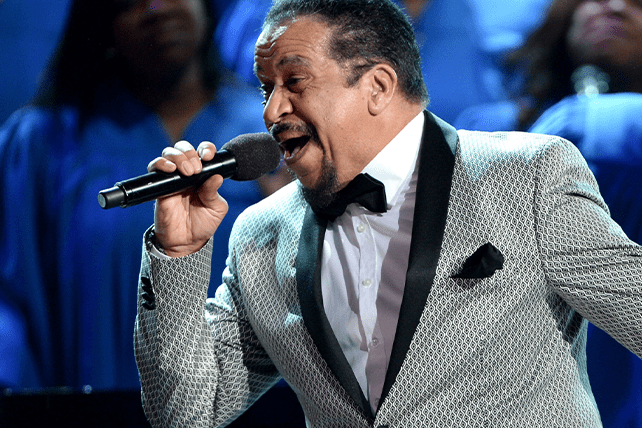(RNS) — For decades, Richard Smallwood has been on stages from Carnegie Hall to churches, at the piano or at the microphone, performing music that features his distinctive genre-bending blend of gospel and classical.
Now, as a way to mark both his 75th birthday and Juneteenth, Smallwood is getting the Kennedy Center treatment: The Grammy nominee and Stellar and Dove awardee will get a special seat in the premiere concert hall in the nation’s capital as other gospel luminaries such as Dorinda Clark-Cole and Marvin Winans join choir members to perform in his honor.
Smallwood, who celebrated his birthday in November, launched the Richard Smallwood Singers in 1977 and then, in the 1990s, created and began touring with the ensemble Vision, which will be part of the performances on Tuesday (June 18) and Wednesday, the Juneteenth holiday that marks the effective end of slavery in America.
Smallwood is known for such hits as “I Love the Lord,” which was later recorded by Whitney Houston, and “The Center of My Joy,” which he co-wrote with Bill and Gloria Gaither.
Though Smallwood describes himself as “semiretired” and said he’s now more of a baritone than a tenor — “The notes I can hit at 28 and 27, I can’t hit anymore” — he is as devoted to supporting all kinds of music as he was decades ago when he said, “I have no problem with crossover music, as long as you carry the cross over with you.”
In an interview days before the Kennedy Center events, he said: “I think any music that preaches Jesus and him crucified is a kind of music that is appropriate in the church setting.”
Smallwood, who was raised by a stepfather who was a Baptist pastor, talked with Religion News service about his enduring music, post-COVID choir music and influences on his songwriting.
The interview was edited for length and clarity.
What does it mean to you to be able to mark this milestone in your life with a celebration of Juneteenth at the Kennedy Center?
First of all, the date of the celebration means a lot to me personally. I was thinking earlier that when I was a little boy my mother used to take me to hear the National Symphony Orchestra. Never would I think one day, they’d be playing my music. That’s amazing. And I’m so grateful.
Does Juneteenth have a personal meaning for you?
Yes, it is, because it’s for our culture. It’s a huge landmark, which signifies freedom, and so to be a part of that is a great honor and such a great opportunity.
Your music has been sung at funerals of victims of police and school shootings, accompanied liturgical dancers at church services and greeted the pope at the White House. Have you been surprised by the range of your work?
I’m always surprised. When you write a particular piece, you have no idea what’s going to become of it — will people like it, or will people sing it. And so to see the years of people embracing it really means a lot to me as a composer. It means a lot that something I wrote can make a difference in people’s lives.
At Metropolitan Baptist Church, a D.C.-area church where you have been a music minister, you’ve done a version of Handel’s “Messiah” called “Handel’s Messiah: A Soulful Celebration,” which included your arrangement of “Rejoice Greatly, O Daughter of Zion.”
I love the “Messiah.” I’m in love with classical music. I was trained classically at Howard University. So I have a love of gospel. I have a love of classical. I love all genres, so it’s always been an honor, and such great excitement to be a part of it.

